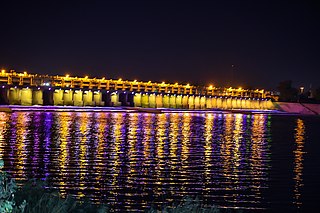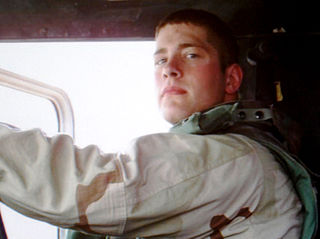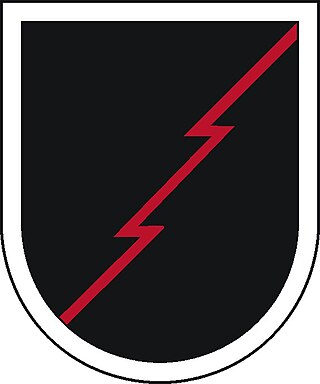
Freedom fries was a politically motivated renaming of french fries in the United States. The term was created in February 2003 in a North Carolina restaurant, and was widely publicized a month later when the then Republican Chairman of the Committee on House Administration, Bob Ney, renamed the menu item in three Congressional cafeterias. The political renaming occurred in context of France's opposition to the proposed invasion of Iraq. Although some restaurants around the nation adopted the renaming, the term became unpopular, in part due to decreasing popularity of the Iraq War. After Ney's resignation as Chairman in 2006, the change of name in congressional cafeterias was reverted.

Kūt, officially Al-Kut, also spelled Kutulamare or Kut al-Imara, is a city in eastern Iraq, on the left bank of the Tigris River, about 160 kilometres south east of Baghdad. As of 2018 the estimated population is about 389,400 people. It is the capital of the province long known as Al Kut, but since the 1960s renamed Wasit.
Ad-Dawr is a small agricultural town in Saladin Governorate, Iraq, near Tikrit. It includes a great number of people from four tribes, al-Shuwaykhat, al-Mawashet, al-Bu Haydar and al-Bu Mdallal. Al-Mawashet tribe is famous for supporting Saddam Hussein.

Al-Iskandariya or Alexandria is an ancient city in central Iraq, one of a number of towns in the Near East founded by and named after Alexander the Great. It is a majority Shia Arab district including Musayyib and Jurf Al Sakhr. The district capital is located about 70 kilometres (45 mi) south of Baghdad, near the Euphrates River. [Source: Liberation of Jurf Al Sakhar ]

The Green Zone is the most common name for the International Zone of Baghdad. It was a 10-square-kilometer (3.9 sq mi) area in the Karkh district of central Baghdad, Iraq, that was the governmental center of the Coalition Provisional Authority during the occupation of Iraq after the American-led 2003 invasion and remains the center of the international presence in the city. Its official name beginning under the Iraqi Interim Government was the International Zone, though Green Zone remains the most commonly used term. The contrasting Red Zone refers to parts of Baghdad immediately outside the perimeter, but was also loosely applied to all unsecured areas outside the off-site military posts. Both terms originated as military designations.

The Triangle of Death is a name given to a region south of Baghdad during the 2003–2011 occupation of Iraq by the U.S. and allied forces which saw major combat activity and sectarian violence from early 2003 into the fall of 2007.
Camp Al-Saqr, referred to by some media sources as Camp Falcon, Forward Operating Base Falcon, Joint Security Station (JSS) Falcon, or Combat Outpost Falcon, was a United States military forward operating base in Iraq a short distance outside Baghdad, some 13 kilometres (8.1 mi) south of the Green Zone. In OIF 2004; it was designated as "Camp Ferrin-Huggins". As of 2009, the base housed up to 5,000 troops.

Al-Faw Palace is a palace located in Baghdad approximately 5 km from the Baghdad International Airport, Iraq. Former Iraqi president Saddam Hussein commissioned its construction in the 1990s to commemorate the Iraqi forces' re-taking of the Al-Faw Peninsula during the Iran-Iraq War. It was said that Saddam used the palace for duck hunting.
Forward Operating Base Iskandariyah (Arabic:إسكندرية), or FOB Iskandariyah, was a United States military forward operating base located on the grounds of the Musayyib Power Plant and the banks of the Euphrates River, north of the town of Musayyib, Babil Governorate, Iraq from 2003 to 2009.

The as-Salam Palace, previously a home of former Iraqi president Saddam Hussein. Since 2012, the palace has been certified as a Republican Palace.
Victory Base Complex (VBC) was a cluster of U.S. military installations surrounding the Baghdad International Airport (BIAP). The primary component of the VBC was Camp Victory, the location of the Al-Faw Palace, which served as the headquarters for the Multi-National Corps - Iraq, and later as the headquarters for the United States Forces - Iraq.

The 2004 Good Friday ambush was an attack by Iraqi insurgents on April 9, 2004 during the Iraq War on a convoy of U.S. supply trucks during the Battle of Baghdad International Airport. It happened in the midst of the Iraq spring fighting of 2004, which saw intensified clashes throughout the country.

The Khost-Gardez Pass, frequently abbreviated as the K-G Pass, and known locally as the Seti-Kandow Pass, or the Satukandav Pass by Soviet forces, is the main land route connecting Khost, the capital of Khost Province, and Gardez, the capital of Paktia province, in eastern Afghanistan. The pass currently consists of a rutted dirt road, though it is slowly being improved by construction crews as part of the international reconstruction effort in Afghanistan.
Forward Operating Base Loyalty is a former forward operating base used by the U.S. Army during Operation Iraqi Freedom and Operation New Dawn located in the New Baghdad District of Baghdad, Iraq.
Kirkush Military Training Base was a United States Army installation near the city of Balad Ruz in Diyala Governorate, Iraq.
Al-Iskandariyah New Air Base is a former Iraqi Air Force base in the Babil Governorate of Iraq. It was seized by invading U.S. forces during Operation Iraqi Freedom in 2003.
Qayyarah Airfield West is an Iraqi Air Force base in the Qayyarah subdistrict of Mosul District in northern Iraq. It was captured by U.S. Army during Operation Iraqi Freedom in 2003. It was also known as Q–West or Key West by the various U.S. Army Forces and civilian contractors stationed there. Control of the base was returned to Iraq in March 2020.

The 274th Forward Surgical Team (Airborne)—part of the 274th Forward Resuscitative and Surgical Detachment (Airborne)—is an airborne forward surgical team of the United States Army providing Level II care far forward on the battlefield. It was first constituted in 1944 and served in Europe during World War II. More recently it has been involved in relief operations following natural disasters and has undertaken several recent deployments to Iraq and Afghanistan. The 274th Forward Surgical Team was part of both the initial entry forces of Operation Enduring Freedom in 2001 and Operation Iraqi Freedom in 2003. Currently the unit falls under the command of the 28th Combat Support Hospital and is based at Fort Bragg, North Carolina.

Route clearance is a routine part of counter-IED efforts performed by military forces around the world. The purpose of route clearance is to secure an important route and render it for safe transport. This mission relies on the use of Sapper and EOD forces to accomplish this task. Although mines have been used in warfare for years, the rise of IEDs in current conflicts has led to the development of the current route clearance doctrine.











